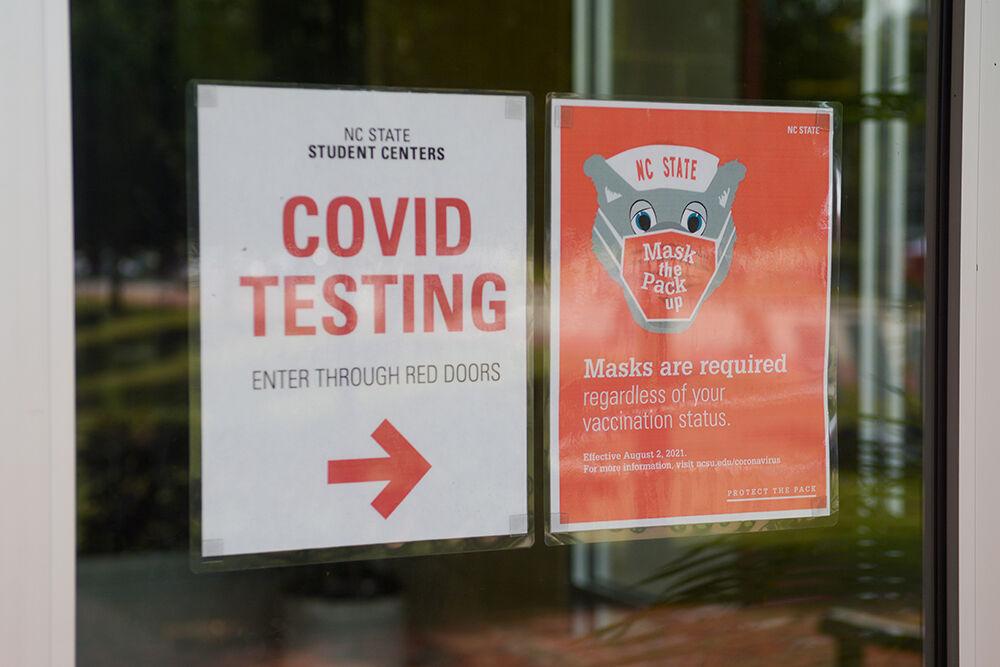As the pandemic continues on, Wake County Public Libraries are scheduled to remain closed for the foreseeable future. Community members are feeling the loss of these library spaces and what they provided in pre-pandemic days: a place to spend time with friends while using the libraries’ various resources. Libraries have now had to adapt to provide entirely virtual experiences, while also extending other resources to students and families who may not have access to the internet.
According to Deputy Director of Wake County Public Libraries Ann Burlingame, as the reality of COVID-19 set in, so did the sad truth that libraries would not be able to reopen as initially expected. This news forced the library system to drastically adapt to continue serving their community.
“In Wake County, we decided to put all of our energy into creating a virtual experience,” Burlingame said. “We didn’t really have that before. We had e-books and audio, but we just went big into, ‘We’ve got to create an experience that will keep the library in people’s lives, but that they will be able to access from home.’”
Burlingame said, after June, the libraries spent even more time, working to improve their virtual experience for those living through the pandemic. Libraries added programs aimed to actively engage users.
“We spent a lot of time trying to focus on any activity, like Storytime Anytime, Studio Storytime; we did video book discussion groups,” Burlingame said. “We did video author programs. Everything was just online, and we transitioned all of our funding for print books into buying more e-content.”
Additionally, the libraries have begun a new book service called “Books on the Go,” which allows librarygoers to continue checking out print books, contact-free.
According to Chris Tonelli, director of external relations at NC State University Libraries, NC State’s libraries have also experienced a transition to online operation; however, this transition was less extreme than Wake County’s.
“One of the great things about our libraries is that we are already a very tech-savvy online organization,” Tonelli said. “A lot of our services were either already online or easily moved there.”
Public libraries, especially during a pandemic, are an invaluable resource for their communities. Burlingame listed a number of activities public library card holders are able to take advantage of.
“If you’re home and want to do genealogy, we have Heritage Quest and Ancestery.com,” Burlingame said. “We had a testing resource called the ‘Testing and Education Resource Center’ for anybody who has to take a standardized test. You could now get that at home. We also had films on demand; we had documentaries and PBS films that we get through NC Live.”
According to Burlingame, one of the library’s most important qualities is providing resources to communities who may not have access to computers or the internet. The pandemic has brought the importance of these resources to the forefront as we have seen images of students across the United States struggle with online schooling due to shaky internet access or no access to a computer at all.
Tonelli also said the NC State University Libraries have been working to distribute Wi-Fi and internet hotspots to students who don’t have access to them. The University is currently waiting for these hotspots to arrive, but Tonelli said following this arrival, there “will be a trial period for us to determine what combination best helps students, faculty and staff with various connectivity challenges.”
“What we’ve noticed is that the southeastern and eastern Wake County, which are more vulnerable communities, haven’t been able to use our online resources nearly as much as northern and western Wake County,” Burlingame said. “So when we start moving towards trying to open and are in the beginning stages of trying to open a library to the public, they come to the library for internet access, for public computers, for a job training program, for citizenship classes. So, our priority is to get open libraries in eastern and southeastern Wake County.”
As for NC State University Libraries, Chris Tonelli said, the primary concern is serving students and faculty and making sure they have access to the resources they need to be successful.
“Whether that be remote technology, or mailing out hundreds of laptops, scanning hundreds of chapters of textbooks,” Tonelli said. “So that folks can have the academic continuity they need to be successful.”













